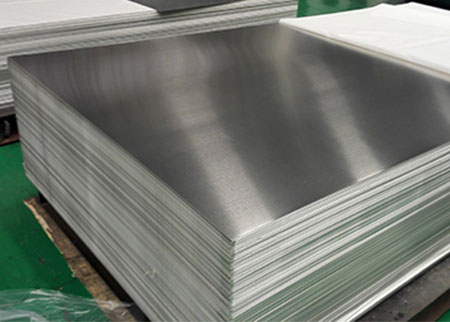You are here:
>
News
>
Aluminum and zinc production capacity has been halved
Aluminum and zinc production capacity has been halved
Can energy saving winter really save Europe? Metal industry "red light": zinc and aluminum production capacity has been halved
Europe's zinc and aluminium smelting capacity has fallen by nearly half over the past year amid a supply crunch caused by the Russia-Ukraine conflict, Eurometaux, the European non-ferrous metals industry association, warned on Wednesday that a further surge in electricity prices could lead to more factories in Discontinued in winter.
Eurometaux noted that aluminium smelters have been hit especially hard because aluminium is one of the most energy-intensive metals in the manufacturing process.
The agency explained that if the aluminum industry with an annual output of 65 million tons was considered a country, it would be the fifth-largest consumer of electricity. Therefore, further production cuts in the aluminium industry could have a considerable impact on overall electricity consumption in Europe.
But at the same time, Eurometaux warned that the additional cuts would have serious and lasting effects on the region's broader green energy goals. Aluminium's use in light-duty vehicles and solar (8.660, -0.14, -1.59%) batteries means it plays a key role in the energy transition, and further production cuts will make Europe more dependent on supplies from carbon-intensive smelters overseas.
Aluminium imports into Europe have risen sharply since many producers began cutting production last year, adding up to 12 million tonnes a year in the carbon footprint of European consumers, it is calculated.
The warning from Eurometaux, which represents miners, smelters and manufacturers employing half a million people in Europe, underscores the risks to the industry.
The European Union is urging member states to cut gas use to avoid a sharp escalation of the region's energy crisis in the winter months, as Gazprom supplies massive cuts or even outages. The European Union plans to reduce natural gas use by 15%, and authorities need to reduce the risk of lasting damage to vital industrial infrastructure while protecting energy supplies to residents. The aluminium and zinc industries are not the main direct users of natural gas, but the vast amounts of electricity consumed by smelters have put them the first to bear the brunt of the energy crisis.
Guy Thiran, director-general of Eurometaux, said the EU gas cuts plan made it clear that politicians are making difficult choices to protect residents and industries this winter. More production facilities are at risk of closing if EU fears of winter gas shortages and soaring electricity prices materialise.
He pointed out that any further decline in European metal production is likely to become sexual, will lead to mass unemployment.



